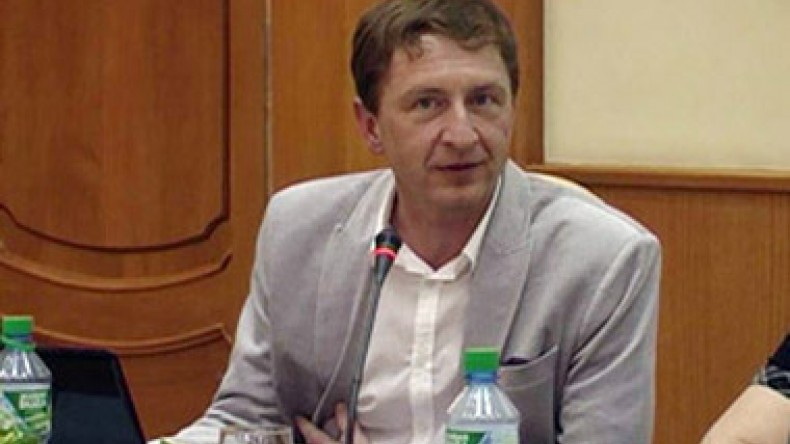
Expert: DCFTA may strengthen Armenia’s multi-vector foreign policy
Panorama.am presents an interview with Dr. Andrey Makarychev – Professor at the Institute of Government and Politics, University of Tartu (Estonia); he is also a member of PONARS (Program on New Approaches to Russian Security), where he regularly writes on the issues of Eurasia and the Russia-EU neighborhood. We have talked to Dr. Makarychev about the possibilities and challenges of the European integration in the post-Soviet space.
- Dr. Makarychev, you write a lot about the EU-Russia relations and their “competition” in the post-Soviet space. How would you characterize the present stage of these relations? To what extent do you think the current EU expansion challenges (and is likely to challenge) the Russian interests in the post-soviet countries?
- Relations are in a state of decline. Even having much in common economically and financially, the two parties can’t communicate with each other due to deep normative gaps. EU-Russia summit are mostly ceremonial events; the Partnership for Modernization is more dead than alive; Russia in fact has withdrawn its previous commitments to jointly solve the Transnistrian conflict within what used to be the Meseberg Initiative, etc. At all these accounts Russia acts very irrationally: keeping 40 per cent of its reserve funds in Euro, the Kremlin nevertheless tries to draw a political line between a “proudly conservative Russia” and “liberal Europe”.
The EU enlargement may run against interests of the ruling elite, yet only if the latter is serious about restoring an imperial model of Russian foreign policy with top-down subordination of neighboring countries. But seen from a wider socio-political perspective, EU enlargement offers more chances for Russia (in terms of business opportunities, professional contacts, developing multilateral models of diplomacy) than threats that are mostly artificially constructed.
- In this context how would you interpret the signing of the Deep and Comprehensive Free Trade Area (DCFTA) between the EU and the Republic of Armenia?
- It will signal about Armenia’s readiness to move towards European normative order and accept both political standards and economic procedures that the EU projects eastward. Politically, this agreement may strengthen the principle of multi-vector foreign policy and testify to Armenia’s unwillingness to submit itself to the Russian sphere of influence.
- The message from the EU has so far been that it is impossible to sign the DCFTA and at the same time to be in the Russian-initiated Customs Union; what exactly makes this impossible? Is there any room for maneuver in this regard?
- Economically speaking, there is almost no room for maneuver – you can’t keep free trade relations with different – moreover competing – economic blocs. Some compromises can be achieved only if Customs Union and the EU strike a deal among themselves and form a wider economic space “from Lisbon to Vladivostok”, to quote Putin’s illusory idea. Yet taking into account multiple economic conflicts between Moscow and Brussels (European Commission’s trial against Gazprom, EU’s complains about Russia’s non-compliance with WTO regulations, procrastinations with visa facilitation talks, etc.), this scenario looks unfeasible for the time being.
- How would you characterize the EU’s response to the extradition of Azerbaijani murderer Ramil Safarov?
- To the best of my knowledge, there was no official response from Brussels. The EU prefers to portray as a Hungary-specific case, in fact ignoring that it happened in one of member states.
- How would you explain the behavior of Turkey in failing to sign the Armenian-Turkish protocols and opening the border?
- Turkey’s position, in my view, depends on two factors – its relations with the EU as seen from the (fading away) membership perspective, and identity-based relations with Azerbaijan. Sometimes these two aspects can hardly be reconciled, which partly explains controversies in Turkish policies.
- The President of Armenia has recently raised the question of the closed Armenian-Turkish border being a significant obstacle for Armenia on her way to benefiting from the DCFTA. How would you evaluate the prospects of border opening once Armenia signs the Association Agreement with the EU? Can the EU play a greater role in this case by pressuring Turkey to open the border?
- Theoretically yes, but Turkey becomes increasingly a self-minded and EU-skeptic country. It could be that reaction from Baku will be assessed in Ankara as more important than the position taken by Brussels. Should Russia move politically closer to Azerbaijan in a reaction to the DCFTA to be signed by Armenia, it certainly won’t stay unnoticed in Turkey and may be regarded as a background for creating a denser set of relations between the two countries (Azerbaijan-Turkey) each having their own claims to the EU.
Conducted by Nvard Chalikyan
Newsfeed
Videos






























